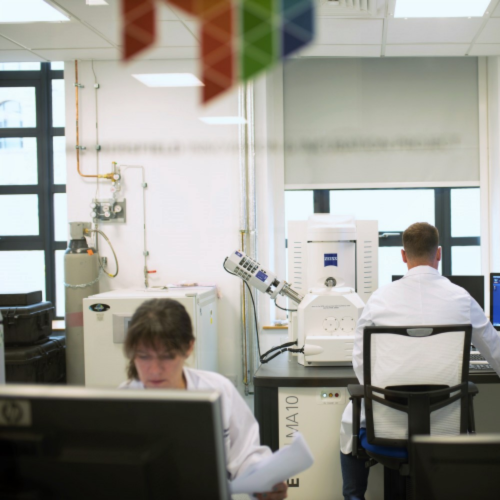Why the North is the place for lab space

Sue Cooke, CEO of the 3M Buckley Innovation Centre (3M BIC), a subsidiary of the University of Huddersfield, shares why life science businesses struggling for lab space should explore what the North of England has to offer when it comes to high growth, strong talent pools, and available space.
Life sciences have experienced accelerated growth in recent times, and the sector looks set for further expansion with increased investment and advances in scientific discovery and techniques.
The progressive impact of the pandemic, a continuing ageing population and the emergence of new and innovative start-ups have also contributed to its evolution.
High growth in the sector, however, has brought on an increasing demand for lab space, and as the sector looks set to have a bigger impact on the UK economy, available space is struggling to keep up.
Lack of suitable space, particularly around The Golden Triangle, is putting the UK at risk of losing innovative life science companies as they seek alternative lab space overseas, such as the US, hindering the growth of the UK sector.
The pressure is on, therefore, to safeguard and sustain the future infrastructure of the UK life sciences sector.
Converting offices to lab space
We are already seeing vacant office, retail, and warehouse spaces - victims of the pandemic as companies downsized or moved away from permanent office space – being creatively repurposed into laboratories.
Landlords and developers are also maximising on the demand to create temporary, short-term flexible lab space to fill the gap.
But repurposing space for labs or developing new can be costly due to complex fit-out requirements, as well as navigating compliance and legislation.
Investment for UK innovation clusters
Life science companies that are struggling for lab space are also being encouraged to consider exploring opportunities further afield.
Over a decade ago, the University of Huddersfield saw a gap in the market to provide start-up and grow-on space for businesses and built the 3M Buckley Innovation Centre (3M BIC). Part of the 3M BIC’s vision was to provide laboratory facilities for research and development, enable businesses to collaborate with the University’s research capabilities, as well as spin-in and spin-out.
We have several labs that currently house organisations within formulation testing, metrology, nuclear and non-destructive testing in extreme environments, including Surfachem, Kromek, NPL and Ionix. We even expanded our lab offering during the pandemic, converting a large open-plan office space to create two new, large lab spaces and smaller offices, having identified a growing need for lab space
More innovation clusters and incubator spaces like the 3M BIC, linked to world-class universities and research centres, are emerging to support evolving life sciences businesses and provide much-needed lab spaces. Not just in the North but all over the UK, all of them boasting high growth potential and strong talent pools.
Earlier this year, Science Minister George Freeman set out his vision to make Britain a “science superpower and innovation nation” and play a leading global role in research and technology. Plans include sourcing further investment and unlocking industrial and public funding to fuel the growth of these innovation clusters across the UK, as well as bolster business and academic collaboration.
Although The Golden Triangle has a strong global reputation as a hot spot for life sciences due to its location, growing organisations looking for a new base, an additional site or to co-locate, should look beyond and explore what the rest of the UK has to offer in terms of research, technology, talent and lab space, if we are to empower an “innovation nation”.
For more information about available Lab Space at the 3M BIC, head here.





















